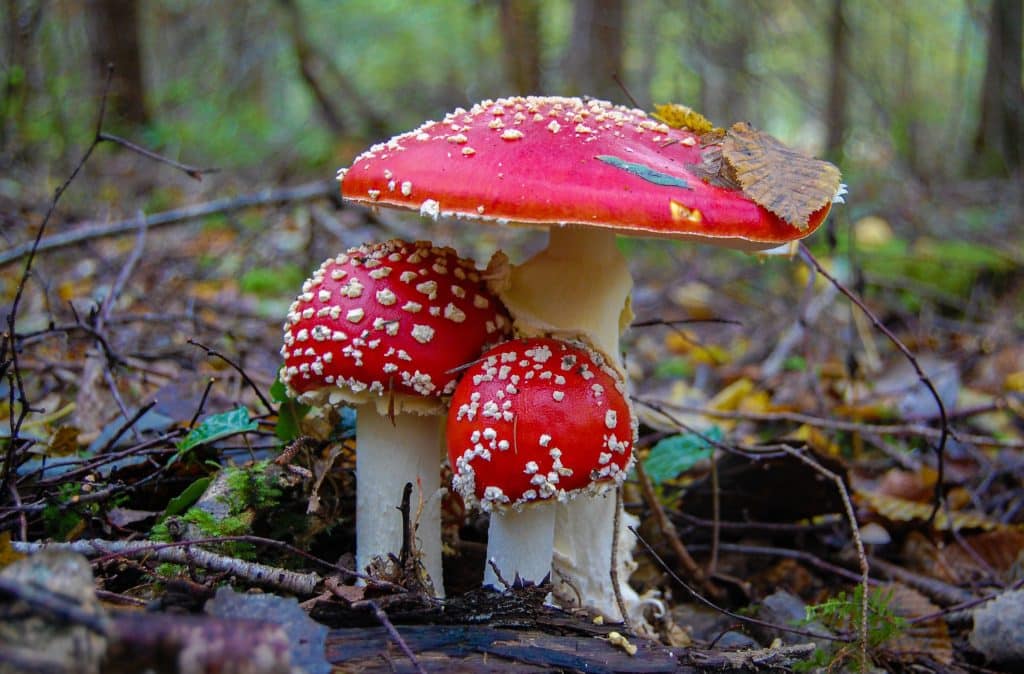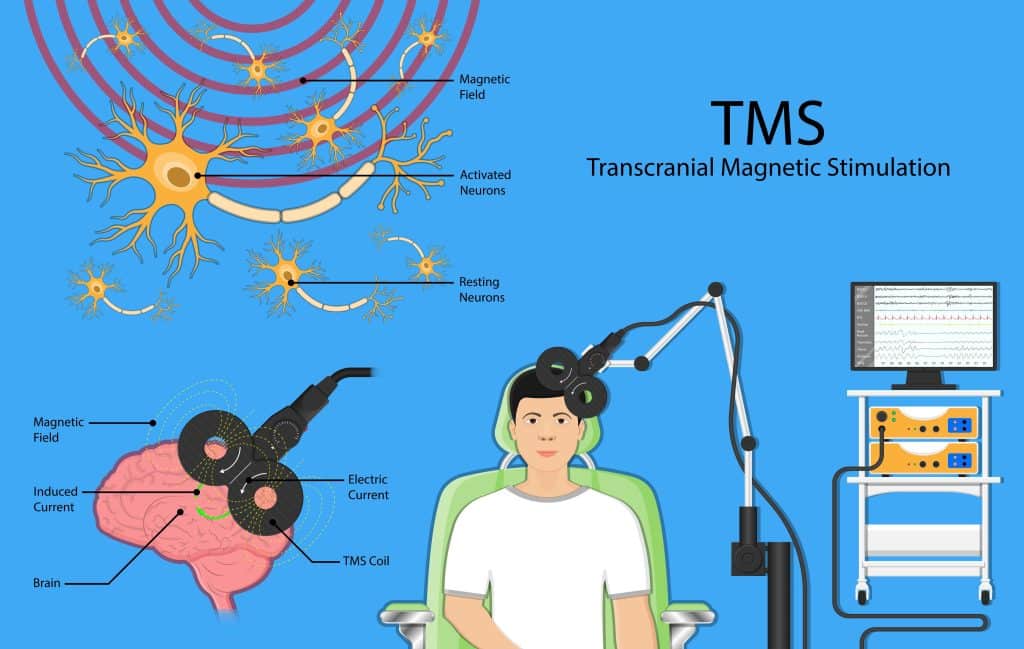The reality of any treatment is that its not for everyone, even if it’s the talk of the town. It’s just a reality of life to understand, but one that might be confusing if you haven’t looked at the research, and only listened to the hype. Here I’m providing some information on what it means to be a ketamine non-responder, along with some of the alternate therapies to try if you’re looking to treat a problem that ketamine cannot help with.
What it means to be a ketamine non-responder
This should probably go without saying, but it’s worth giving a little insight to. A non-responder is simply someone who doesn’t respond to a treatment. It doesn’t matter what the treatment is. In theory, the majority of the people receiving ketamine therapy are considered a non-responder for conventional medication. Conventional medication, of course, mainly means pharmaceuticals, though it can technically apply to talk therapy, or any therapy used, including natural ones. It just means you don’t get the good response that other people get. It sucks, but when looking at anything, it’s always a possibility.
The other reality of non-responding, whether you’re a ketamine non-responder, or non-responsive to some other treatment, is negative-responding. That means not only not getting a positive response, but actually getting a negative one. Think of when people talk about a ‘bad trip’ on acid or mushrooms. It’s not just that they didn’t dance with fairies or feel connected to everyone around, it means they felt bad. Extra anxiety, fear, feelings of discomfort. This goes beyond not having a response, to actually having a bad response.
The reason I mention this is that people will often go hard if they want to believe something will work. So hard that they’ll subject themselves to repeated bad experiences to try to accomplish their goal. While I am all for trying different things, I am also a firm believer that it’s important to know when to stop. A lot of damage can be done by continuously trying to do something that doesn’t work, even if it’s just in giving a sense of failure. This is important to understand with emerging treatments like ketamine therapy, where not a lot is known overall. Sometimes you have to know when it’s just not for you.
Thanks for stopping by the site. Keep up with the Joneses by subscribing to the Cannadelics Weekly Newsletter, and also get yourself access to awesome deals on cannabis flowers, vapes, edibles, smoking devices, cannabinoid compounds (like delta-8 and HHC), and tons more. Get yourself baked. Please do it responsibly.
Luckily, there really isn’t a rule that just because a person doesn’t respond to one thing, that something else won’t, or can’t, work. This therapy might be for treatment resistant issues, but that doesn’t mean that treatments can’t be found. Who among us has literally tried everything out there for their issue? I certainly haven’t. I might not respond to a lot of things, but the world is a big place, with lots of options to offer, and for non-responders to one therapy, it means keeping up the search for another. While I certainly can’t guarantee what a person can and will find, I can say that I think there are tons of possibilities, often more than we know about.
When it comes to ketamine, I want to show an example of the issue I dealt with, the ketamine-induced anxiety. The reason I bring up this study specifically is because it worked to show how when this anxiety is induced by ketamine, it generally leads to a person being a non-responder. There is actually a lot of information showing the realities of these treatments, we just aren’t always pointed in those directions. So for those not understanding a lack of response or a negative response, you’re not weird, you’re just not a responder.
Other options: psychedelic treatments
Ketamine is a dissociative hallucinogen. Drugs like magic mushrooms (psilocybin), LSD, and ayahuasca (DMT) are psychedelic hallucinogens. They have different general modes of action, and affect neurotransmitters in different ways. While its easy to simplify it to ‘serotonergic’ vs ‘dopaminergic’, the reality is that these are complex molecules that affect many things, and we are complex beings that respond differently.
Recently, psychedelic therapies have gotten just as much attention as ketamine for providing some ability for neuroplasticity – the ability for your brain and thought patterns – to change. And these compounds, along with MDMA and mescaline, have repeatedly shown a positive influence on psychiatric issues. For some people, they can certainly provide an answer to problems.
Will they work for everyone? Of course not. Much like with ketamine, this can’t be expected. If your brain isn’t wired to respond positively, then you won’t be one of those lucky individuals to get your answer. But for a lot of people, these therapies have proven invaluable. If you believe they can help, give it a shot. At worst, you’ll have a bad trip, and a lot of new experience about yourself and how you react. For those who can benefit, it doesn’t necessarily mean an answer to everything in life. And neither does ketamine for responders. But help is help, and for a lot of people, these substances seem to help.
Other options: natural compounds
Truth is, pharmaceuticals do work for some, and they can be tried as well. But this article is more about alternative treatments, so I’m not talking about pharmaceutical products, but rather, other natural compounds that might be useful.

Another big one that is only just now starting to get some attention, are amanita muscaria mushrooms, aka fly agaric mushrooms. These mushrooms provide a stronger effect on the neurotransmitter GABA, which has a more sedating effect than psychedelics. How beneficial they are in terms of neuroplasticity certainly hasn’t been established, but thousands of years of use in spiritual ways does say something.
There are tons of other natural herbs, spices, and plants that have medicinal effects. Kratom is one option, and so is ibogaine. Depending on what your issue is, these plants are also making names for themselves right now, and undergoing much research. Then there are a ton of other options, like Valerian root, California poppy, and even hops. The plant world is massive, maybe there’s something in it that can provide a benefit for you.
Other options: TMS and ECT
This is where we move away from natural compounds, and into a different territory. One that actually doesn’t involve medications, or even talk therapy. It involves stimulating the brain in different parts to get it to change. Back in the day, it was known as electro-convulsive therapy, and it didn’t always get a good rap. These days there’s an alternate version called TMS – transcranial magnetic stimulation therapy.
I admit I have no experience here. I mention it because when looking for treatment, and coming to dead ends, it does sometimes require trying different things. And when problems get bad enough, it might mean you’re willing to have your brain zapped to make it better. Will it work? Much like everything else mentioned, for some yes, and for some, no. In fact, ECT – electro-convulsive therapy isn’t just a thing of the past, but a competing treatment.
They work differently. ECT requires more time in a hospital and has a lower rate of success. It involves going under anesthesia and sends an electric current into your brain to stimulate parts of it for a number of minutes. These shocks actually induce a seizure in your brain. It’s not a simple treatment, that’s for sure, and those considering it should really do their research. ECT comes with side effects and can require a recovery time anywhere from hours to days.
On the other hand TMS also works to stimulate the brain, but does so using magnetic fields. This is a much newer treatment than ECT, and so far has a higher success rate, though I don’t think quoting numbers is all that useful, as there is no real consensus. The benefit to this over ECT is that it doesn’t require anesthesia, is less invasive, has no recovery time, and isn’t associated with major side effects. But its also very new, and we know that when something is newer, there is less accumulated evidence.

The reason I bring up these therapies is because people require different things in life, and where one person doesn’t get a benefit, someone else might. When looking for options and feeling like there are a lot of dead ends, it sometimes means really pushing the envelope. I encourage anyone who thinks they could benefit from either, to do the research, and see how they feel about the overall picture.
Conclusion
Through this series, I’ve gone through my own experience as a ketamine therapy user and non-responder, as well as highlighting things to look out for when getting these treatments, and other options available to those in need of help. The best way to understand what’s out there, is both in the research and personal accounts, the latter of which requires being honest, even when its hard to be.
I hope my experience can be useful to people out there. These experiences are not always written about clearly, and my goal is to provide some actual insight, of an actual experience. This is not about a researched therapy, but a personal experience with one. Please do not lose hope if you find yourself not having the experience you thought you would. Just get up, brush yourself off, and see what else is out there. It’s how life works.
Best of luck in all your treatments!
Welcome everyone!! Thanks for joining us at Cannadelics.com; a news site geared toward the independent reporting of the cannabis and psychedelics spaces. Pay us a visit regularly to stay on top of everything going down, and sign up for the Cannadelics Weekly Newsletter, so you’re never late on getting a story.
For more information on my personal ketamine experience, you can revisit:
My Ketamine Experience: Part One – The First Infusion
or
My ketamine Experience: Part Two – The Second Infusion
The post My Personal Ketamine Experience: Part 3 – What It Means To Be a Non-Responder, and Alternate Therapies appeared first on Cannadelics.
Via https://cannadelics.com/2022/12/14/my-personal-ketamine-experience-part-3-what-it-means-to-be-a-non-responder-and-alternate-therapies/
source https://rosalinaklerkx.weebly.com/blog/my-personal-ketamine-experience-part-3-what-it-means-to-be-a-non-responder-and-alternate-therapies
No comments:
Post a Comment